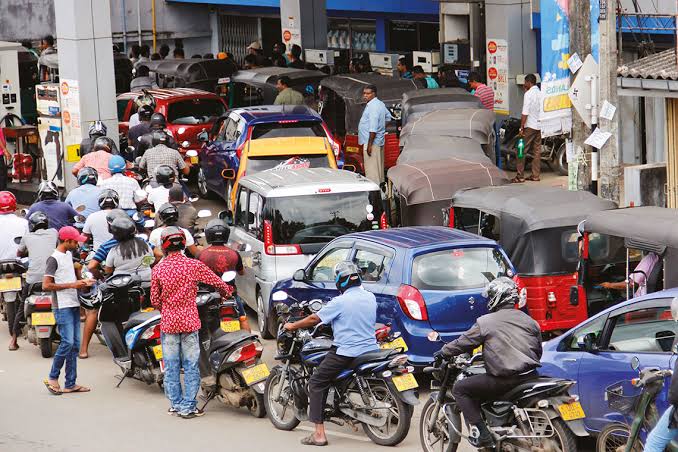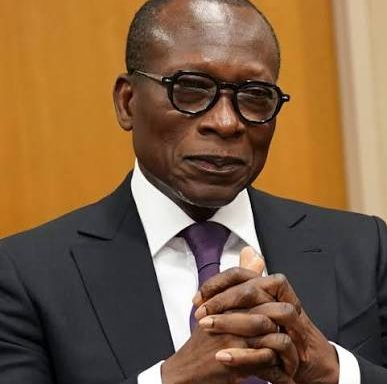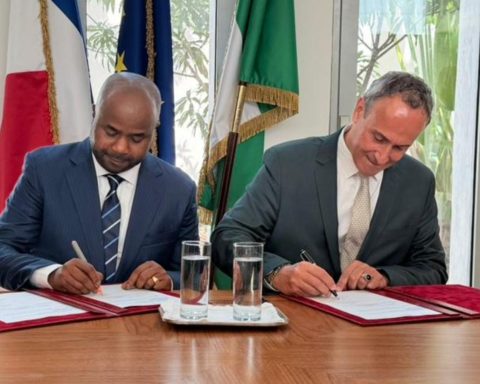Since President Bola Ahmed Tinubu took office, Nigerians have experienced relentless hardship. From the controversial removal of fuel subsidies to unprecedented hikes in fuel prices, many citizens feel caught in an economic chokehold that shows no signs of loosening.
The increase in petrol prices has triggered a chain reaction of price hikes in food and basic commodities, worsening living conditions and making life in Nigeria unsustainable for many. The central question is whether this government is failing its people and if it can reverse the crisis before it’s too late.
Join our WhatsApp ChannelThe Impact of Fuel Subsidy Removal
The removal of fuel subsidies was one of Tinubu’s first major policy decisions. From an initial N175 per litre in May 2023, petrol prices spiked to N865 per litre and recently hit N1,030, causing immediate inflationary pressures on goods and services.
According to Aisha Bello, a 35-year-old mother of three from Lagos, “We can barely afford to feed our children now. When petrol prices went up, everything else followed. I used to spend N5,000 on groceries, but now it’s nearly N15,000.” Her experience reflects a growing despair among families who find their budgets stretched thin.
Rising Inflation, Fuel Price and Its Daily Toll
Inflation has been a recurring nightmare, escalating steadily and currently resting at over 32% as of August 2024, compared to 25.80% a year earlier. Families are forced to make daily sacrifices, prioritising the most basic needs and often going without meals. The minimum wage has effectively lost its value; a bag of beans alone costs more than double the N70,000 minimum monthly wage, leaving many families in poverty.
“We are living paycheck to paycheck,” said Chidi Okafor, a civil servant. “Every month, I wonder how I will pay rent and buy food. There’s no end in sight to this inflation.” His words resonate with many who feel trapped in a cycle of financial stress.
A Crisis Without a Clear Strategy
Despite multiple warnings from economic experts and international agencies, there appears to be little to no government response in terms of creating actionable strategies to curb inflation or food scarcity. The government has prioritized costly projects over necessary interventions, leaving citizens to bear the brunt of the economic downturn.
READ ALSO: Nigeria’s Energy Crisis: A Fuel Hike Or A Broken System?
Dr. Stella Nwosu, an economist, expressed concern about the government’s approach. “The current administration seems disconnected from the reality of the average Nigerian. The economic policies need urgent recalibration to focus on stabilising prices and enhancing food security.”
Meanwhile, the Naira has depreciated at a worrying rate, exchanging at N1,700 to the dollar, down from N460 in May 2023. This plummeting value, coupled with an interest rate of 26.75%, has left businesses and ordinary citizens alike with little hope for financial relief.
The Government’s Response: Protests and Outcry On Fuel Price, Others Ignored
Public backlash against these policies has been swift, with widespread protests in recent months. Nigerians have taken to the streets to express their displeasure, bearing banners and hashtags such as #EndBadGovernance and #FearlessInOctober. Yet, rather than meeting these demands with effective policy changes, the government’s response has been to maintain the status quo, showing apparent indifference to the public outcry.
“This government does not listen to us,” said Ibrahim Musa, a student activist involved in recent protests. “We demand change, but all we get are empty promises. Our voices are being ignored.” His sentiments reflect a growing frustration among the youth, who feel their future is uncertain.
Food Security on the Brink: A Looming Crisis
The World Food Programme’s predictions about Nigeria’s food insecurity have become all too real, with 26.5 million Nigerians likely to experience severe hunger by the end of this year. The Global Hunger Index ranks Nigeria among the worst, and the country’s food inflation data underscores this alarming trend. With food prices outpacing income levels, the average Nigerian cannot afford the staples necessary to survive.
Dr. Adebayo Salami, a nutritionist, warned that the consequences of the rising prices are dire. “If families can’t afford nutritious food, we will see a spike in malnutrition and related health problems. This will have long-lasting effects on our children, who are the future of Nigeria.”
The impact of these economic pressures on health is severe. Families are forced to reduce food intake, which has adverse effects, particularly on children and pregnant women, where malnutrition rates are expected to surge, further increasing child and maternal mortality rates. Health experts warn that unless the government takes swift action, the impact on Nigeria’s future generations will be irreversible.
Policy Reform: Missteps and Missed Opportunities
Tinubu’s government has argued that removing subsidies and adopting austerity measures are steps toward long-term reform. However, the absence of policies addressing immediate hardships has led many to question the efficacy of these reforms. Critics argue that, instead of focusing on ambitious projects and international investment deals, the administration should concentrate on domestic economic stability.
Dr. Nwosu emphasised the need for targeted support: “The government should be investing in social safety nets to protect the most vulnerable. Instead, they are focused on grand projects that do not address the immediate needs of the people.”
Proposed measures such as targeted welfare programs or improved job creation policies remain underdeveloped or insufficiently implemented. There is an urgent need for home-grown solutions that prioritise Nigerian lives over theoretical economic gains promoted by global financial institutions.
Charting a New Course for Economic Survival
The federal government has the power to mitigate these hardships by implementing policies with a “human face.” This means ensuring that reforms do not disproportionately affect the most vulnerable citizens and promoting transparency in government spending. Stringent measures to reduce excesses within the government itself could redirect resources to sectors in critical need, such as healthcare and education.
Beyond cutting wasteful spending, the government should invest in sectors that foster economic resilience and self-sufficiency, like agriculture and small businesses. With a largely young population, prioritising youth employment through skill development and entrepreneurship is essential.
“This is a pivotal moment for Nigeria,” said Dr. Salami. “We need to empower our youth and invest in sustainable practices to ensure a stable future. The current approach isn’t working, and we need to change course urgently.”
A Call for Leadership
The question that remains is whether Tinubu’s government will rise to the occasion and address the country’s economic plight with genuine empathy and effective policy changes. Without immediate relief and comprehensive strategies, the majority of Nigerians face a bleak future.
The survival of millions depends on a government that will heed their plight, stabilise the economy and fuel price, and provide real opportunities for growth and prosperity. As Aisha Bello poignantly noted, “We just want to feed our families and have a future. Is that too much to ask?”
Emmanuel Ochayi is a journalist. He is a graduate of the University of Lagos, School of first choice and the nations pride. Emmanuel is keen on exploring writing angles in different areas, including Business, climate change, politics, Education, and others.

















